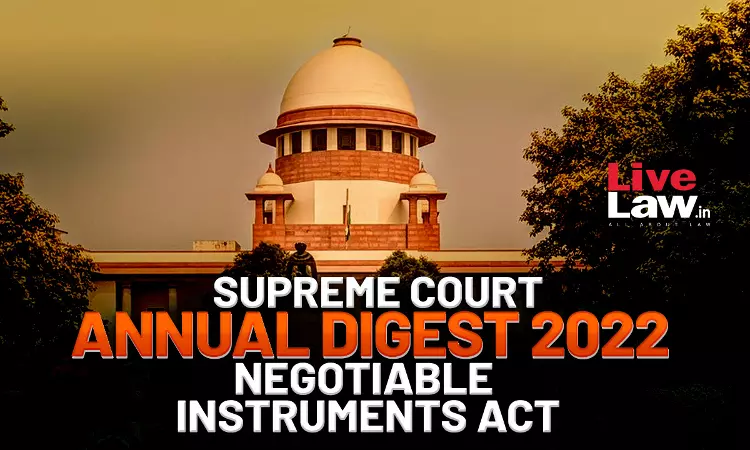Supreme Court Annual Digest 2022- Negotiable Instruments Act
LIVELAW NEWS NETWORK
21 Jan 2023 10:30 AM IST

Next Story
21 Jan 2023 10:30 AM IST
Negotiable Instruments Act, 1881 Section 3 - Banker Negotiable Instruments Act, 1881 - Section 3 - ‘Banker’ includes any person acting as a banker and any post office savings bank. In terms of this section, a post office savings bank is a banker under the NI Act. (Para 11) Pradeep Kumar v. Post Master General, 2022 LiveLaw (SC) 139 : (2022) 6 SCC 351 Section 8...
